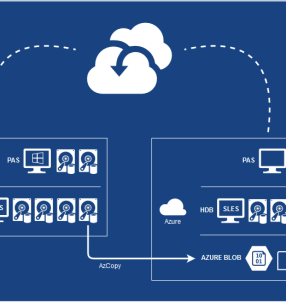You are here: Home / COMPUTERS / That This Doctor Cannot Even Afford Computer Shows Iraqis Still Paying Price of US Invasion

Dr. Mazin Al-Jadiry, a senior oncologist and assistant professor of medicine, needs a new computer. His old one, purchased in 2015 is worn down and out-of-date. Not a big problem for most doctors or professors as computers are—to state the obvious— critical, an absolute necessity, provided and maintained as part of the job. But this is not the case in Baghdad—not in the hospital where Dr. Mazin works, and not at the University in Baghdad where he teaches. Can you imagine a doctor at Dana-Farber Cancer Institute without a computer? Or a university professor in the US being told to buy their own computer?
There are a few other problems: there’s no computer store in Baghdad where Mazin could purchase the high-capacity computer he needs; and the ongoing—and now renewed— instability makes it impossible to imagine shipping a computer to Baghdad. Getting a computer for Dr. Mazin will involve finding donors and traveling outside the country…adding time, effort and thousands of dollars to the purchase. This is the price Iraqis pay for our ongoing war in their country. Nothing is easy. Basic needs cannot be met, basic necessities cannot be provided by the government nor by institutions—not for you, or your family and not for your job. Iraqis are not and have not been living what most people would call “normal” lives for the last 30+ years. And they have been living these abnormal lives, for the most part, out of sight and out of mind of the American public.
War and destabilization—whether through sanctions, targeted killings, movement of troops and equipment or overt bombing—robs people of their health and well-being. It takes a toll on every single aspect of life. And the toll is paid—not by the perpetrators of these never-ending wars but by the innocent victims on the ground.The latest flare-up in the Middle East, the planet-threatening tension between Iran and the U.S. and wide-spread demonstrations across Iraq have thrust the country back into the news. We’re seeing what Iraqis have been experiencing for decades, the struggle between Iran and the US for control and influence in Iraq and the danger—dangerous for Iraqis- of a proxy war fought on Iraqi soil. The elephant in the news room however, even after 30 years of war, continues to be the human story. The human costs. I don’t think most Americans can visualize Iraq as a country filled with people—men, women and children struggling to survive in post-war chaos. It’s a location. A contested space, occupied by warring forces, by armies and militias, not a country with towns and villages inhabited by ordinary people, with needs just like our own. If some few people imagine ordinary Iraqis struggling to go about their business, do they imagine a population…not “just” wounded and suffering or dead as a result of a never-ending war… but do they imagine children? Children in ever-increasing numbers sick and suffering from cancer? Can they imagine the exhaustion of doctors who stay and struggle on, caring for these children without adequate resources?
The Pediatric Oncology Unit at Children’s Welfare Teaching hospital in Medical City Baghdad (CWTH) where Mazin works is, by the number of patients they serve, one of the largest cancer facilities in the Middle East, treating almost twice as many patients as the King Hussein Cancer Hospital in Jordan. It has a capacity of 30-40 beds, but the number of actual inpatients ranges from 60–80. In addition they see an average of 300 outpatients per week, 1200 per month and more than 11,000 per year. It is the primary referral hospital in Iraq, caring for more than 50% of pediatric cancer patients. Still, they lack everything they need to provide even the most basic care for their patients—adequate numbers of well-trained doctors and nurses, up-to-date medical equipment and technology, medicines and even sufficient beds for patients. These are the obvious problems, problems that could theoretically be solved by increased funding from the Ministry of Health.
The bigger problem, one that cannot be solved with money, and one that impacts care, whether it is for cancer or any other medical problem is this: one cannot—no one can— be in good health when they are living in a war/post-war zone such as Iraq. Patients come into care in an already compromised, unhealthy condition. Health is defined by the WHO as: A state of complete physical, social and mental well-being, and not merely the absence of disease or infirmity. Iraq once had the best medical care and medical care system in the Middle East. Social and economic policies supported other aspects of life that contributed to a healthy population, such as: free and mandatory education through university, affordable housing, ample food availability and high employment, guaranteed by government subsidized jobs. Most, if not all of this is long gone, along with a state of good health and well-being for Iraqis.
Common sense tells us good health is “everything”; that lack of good health stands in the way everything, of personal and collective growth, development and achievement. Iraqis—whoever they are and wherever they are in Iraq—have suffered a catastrophic decline in health. The systems they depended on—medical schools, hospitals and clinics—are damaged and in disrepair. The people they depended on for medical care are in short supply and depleted by years of struggling to meet increasing and increasingly serious health problems. The economic and social welfare system, the social and cultural integrity that Iraqi society depended on to support their health as individuals and communities, has been shattered. This is forcing people who can, and/or who are desperate to seek medical care outside of the country, at great expense.
Dr. Salma, the director of the unit at CWTH sent me a recent article about the high-cost of cancer care across borders in conflict zones. The study, from JCO Global Oncology, published by the American Society of Clinical Oncology and focusing on sixty Iraqi cancer patients in Lebanon, reveals why they felt compelled to seek cancer treatment outside of Iraq and the economic burden of their decision. The top three reasons: overworked and under-resourced medical staff; inconsistent availability of chemotherapy agents and diagnostic tools; and, damaged or destroyed oncology centers in Iraq. And the economic burden of seeking care? “In general, treatment-related costs vastly exceeded monthly household incomes, forcing patients to sell homes and property, with 90% of respondents reporting high levels of financial distress.” Iraqis, who once had the best medical system and care in the Middle East, care at no cost, are now faced with a greatly compromised system, and out-of-reach medical costs.
This brings us back to Dr. Mazin and his computer; the extra time, effort and money required to acquire a computer—an essential tool in medicine—is yet another challenge to providing quality cancer care for his patients. The listed price for the computer he needs for work and research purposes is about $4000, but getting the computer will cost more like $6000 when all is said and done. This extra cost, financial and human in terms of time and effort is the price of war in Iraq, the price being paid in this case by an already exhausted doctor and university professor. Iraq and Iraqis are not alone in this struggle. War and destabilization—whether through sanctions, targeted killings, movement of troops and equipment or overt bombing—robs people of their health and well-being. It takes a toll on every single aspect of life. And the toll is paid—not by the perpetrators of these never-ending wars but by the innocent victims on the ground.
[“source=commondreams”]
| M | T | W | T | F | S | S |
|---|---|---|---|---|---|---|
| 1 | 2 | 3 | 4 | 5 | 6 | 7 |
| 8 | 9 | 10 | 11 | 12 | 13 | 14 |
| 15 | 16 | 17 | 18 | 19 | 20 | 21 |
| 22 | 23 | 24 | 25 | 26 | 27 | 28 |
| 29 | 30 | |||||























